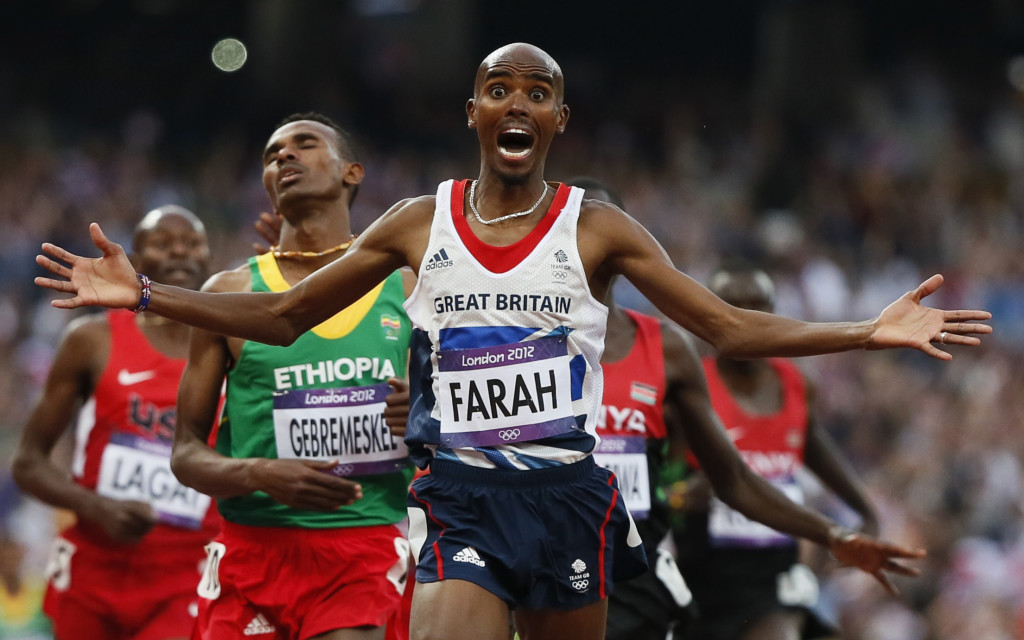
You’ll know the mid-race feeling: “I can’t hold this pace. I can’t hang on to the guy in front. I’ve got nothing left.” It’s the business end of a race and the body is sending out distress signals. Or, at least it feels like the body.
Of course physical prowess – whether fundamental genetic ability or your training regime – plays a big part in how well you perform. Yet sports scientists are increasingly focusing on the mind as the place where races are won and lost; where exceptional performances are forged.
Psychologists, such as Professor Steve Peters, have become a weapon in top sportsmen’s armoury, teaching them how to banish negative thoughts – their ‘inner Chimp’ – and perform at their best under the greatest pressure. And the power of the mind is nowhere more decisive than in running, when you’ve got only yourself to look at.
So what is it that gives some athletes greater mental fortitude; the inner desire to push through the pain barrier? What shapes the will to win?
It is a truly complex field with as many answers as there are athletes. But it can be boiled down to four core personality traits, each often forged by deep-seated personal experience: passion, belief, obsession and grit.
Childhood memories
Passion, often catalysed by an inspiring parent or teacher, is a powerful wellspring in enabling adult athletes to enjoy – or at least be fascinated by – the gruelling process of training and preparation.
The Brownlee brothers – outstanding runners and not so bad in the water or on the bike – attribute their ability to push themselves so hard in part to the fact that their parents instilled a sheer joy in physical activity. “Sport and exercise were always around us,” says Alistair Brownlee. “Mum and Dad’s attitude seemed to be that we should try everything,” adds the younger Jonny Brownlee. “It made us appreciate that we were capable of far more than we thought.” And it is that belief in your own powers of performance which marks the second core characteristic, enabling a clarity of purpose that is priceless in unlocking an athlete’s full potential.
“There is a great story about David Rudisha before he broke the world record at the 2012 Olympics,” says the Open University’s Ben Oakley, author of Podium: What Shapes a Sporting Champion. “Seb Coe – who was Rudisha’s hero – showed him round the Olympic Stadium before the Games and told him, ‘This is your place.’ After he won gold, Rudisha said the confidence this gave him was a big factor behind his record-breaking run.”
When it comes to shorter events, Richard Moore, author of The Bolt Supremacy, believes Jamaica’s deep heritage in sprinting is the single most important factor in their dominance. The rich base of skills and endless supply of elite daily training partners it provides is advantage enough, Moore suggests. But just as important is how it hones Jamaican sprinters’ minds to withstand pressure, notably in the island’s intensely competitive annual schools championships. “Usain Bolt has always said it: that if you can cope with Champs you can cope with anything,” Moore says. “Bolt also suggested that it’s why Asafa Powell has always frozen on the big stage – not enough experience of Champs: his school didn’t always qualify.”
Point to prove
So far it’s been mainly the more positive personality traits. But there are the darker sides. For example, the obsession and perfectionism which are close cousins of the discipline and focus that any runner needs for success.
“Some champions are well-adjusted and healthy. They are fascinated by the process of improving their performance. But there are also many who are driven by hard times or by a trauma of some sort – whose self-worth is tied to accomplishments,” says Ben Oakley. “They need to prove themselves and to prove others wrong. Athletes have a complex relationship with pain.”
Sporting examples are legion – whether as an escape from tough family circumstances, financial hardship, overly pushy parents or bullying in the school playground. Kelly Holmes is perhaps the most famous example, talking candidly about her difficult upbringing and how a succession of injuries then drove her to self-harm – and also to the training regime which subsequently resulted in double Olympic gold.
Ed Caesar, in Two Hours, an exploration of the marathon, shows how while the chance to escape poverty by winning a big money international marathons is a major motivating force for Kenyan runners, his main subject – New York Marathon winner Geoffrey Mutai – is also driven by mental forces dating way back to childhood. “Mutai desired more than medals or money, although both were important to him. He wanted to be validated in some way,” says Caesar.” As victory followed victory he had waited to hear something – an acceptance from his father who had blighted his childhood and chastised his choice of profession.”
Finally there is grit – the mental resilience earned by fighting to overcome setbacks. This could of course to any of the top distance runners from the 1970s – the Brendan Fosters and Ian Stewarts. They made them tough back then. More recently Mo Farah, separated from his twin brother at a young age and whose family fled war-torn Somalia when he was eight, shows how setbacks have fuelled a relentless hunger for training and an extraordinary need to win. “Few people ever know what you go through,” Farah said recently. “When you are training, there is a little voice telling you to slow down or to stop when the going gets really tough. But I keep telling myself, ‘I am not going to stop. No way am I going to stop.’ It is a split second. But if you start to ease up you will be easing up forever.”
There are myriad influences. But there’s no success without passion, belief, obsession, grit. Harness those four and you will have the foundations of the winner’s mindset.






